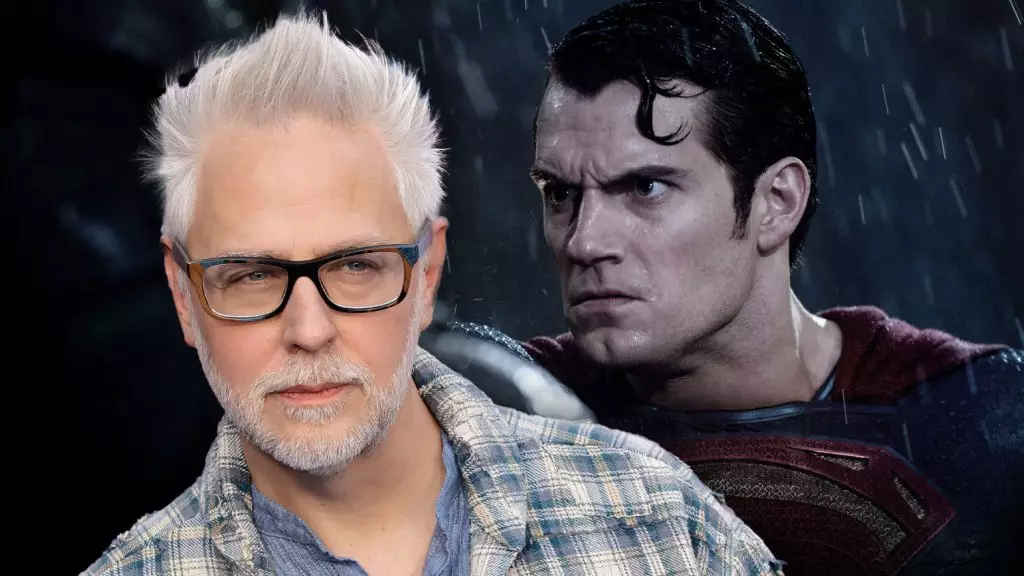In the ruthless world of blockbuster franchises, loyalty is a fleeting concept, often used as a tool to manipulate and control talent rather than a genuine value. Henry Cavill, once celebrated as the definitive Superman, has found himself cast aside without much regard for the investment he made in his role or the emotional connection audiences developed. Behind the scenes, industry insiders like James Gunn acknowledge Cavill’s professionalism and decency, yet they continue to treat him as a mere pawn in a larger, profit-driven game. This systemic inconsistency reveals a stark truth: in Hollywood, career stability is a myth, and actors are disposable commodities meant to serve corporate interests rather than personal aspirations.
Despite Cavill’s undeniable popularity and the deep bond he cultivated with fans, he was unceremoniously replaced as Superman in the new DC Universe. The behind-the-scenes regret shared by Gunn and Safran seems more like lip service to appease the public sentiment, rather than a genuine concern for Cavill’s well-being or legacy. Such actions expose the superficiality of Hollywood’s supposed loyalty—what’s presented as respect is often just a façade for economic pragmatism. Industry executives, driven by quarterly reports and franchise fatigue, often discard talent once their branding utility wanes. This cold reality forces actors into a precarious position where personal integrity is overshadowed by corporate imperatives.
Power Dynamics and the Illusion of Respect
The way Gunn and Safran approached Cavill’s departure underscores the transactional nature of Hollywood relationships. They admit that breaking the news was “unfair,” yet their heartfelt words hardly compensate for the emotional fallout experienced by an actor who dedicated years to a role now deemed obsolete. Cavill’s request to control the timing of his public announcement isn’t a marker of ego but a demand for dignity—a dignity that Hollywood continually undermines in its relentless pursuit of mass consumption. This attitude underscores a troubling sense of entitlement by studios, which see talent as interchangeable cogs rather than valued collaborators.
While Gunn claims he would “love” to include Cavill in future projects, this sentiment feels like window dressing rather than a genuine commitment. The truth is, Hollywood’s power brokers prefer to keep options open, often leaving actors like Cavill in limbo, dangling on the edge of relevance. This approach fosters a toxic culture where actors cannot truly build or sustain careers because their roles are always contingent upon the shifting winds of studio whimsy. The industry’s insistence on constant reinvention and cash grabs neglects the importance of nurturing talents and respecting their contributions—a mentality that ultimately commodifies human presence into disposable assets.
Questioning the Authenticity of Hollywood’s “Honest” Narratives
The revelation that Cavill’s departure was handled with supposed “kindness”—and that Gunn is open to future collaborations—raises more questions than answers. Is this a genuine effort for reconciliation or just a strategic PR move designed to soften the blow? Hollywood’s narrative machinery often portrays these dismissals as mutual decisions or unavoidable pivots, but closer scrutiny reveals a pattern rooted in superficiality and transactional relationships. Genuine respect does not come from empty words or fleeting gestures; it is reflected in consistent actions that honor talent and loyalty over time.
The industry’s cracks are further exposed by how easily beloved actors are discarded for the sake of emerging profits. This reflects a pervasive disregard for the human element behind the spectacle. In a society increasingly championing worker rights and ethical treatment, Hollywood remains mired in its own outdated system—one that values profits over people. The emotional turmoil faced by actors like Cavill is a stark reminder of the system’s failure to treat individuals with the dignity they deserve. Yet, deep down, it’s also a reflection of a reprehensible cultural attitude—one that sees entertainment as disposable, just like its actors.


Leave a Reply